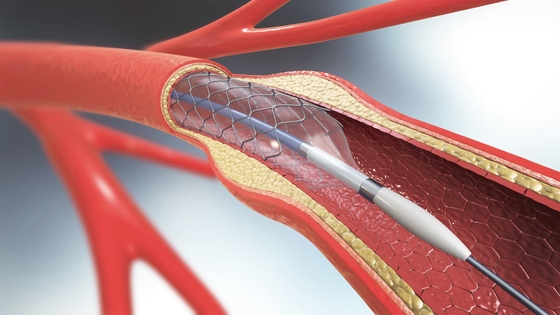
Cliff’s recovery from heart attack and stents
Warning signs before the heart attack
Cliff Karp is exceptionally fit, but that didn’t prevent him from experiencing a heart attack.
Fatigue
A dedicated runner and gym enthusiast in his 50s, his normal routine was disrupted by a sudden and overwhelming sense of fatigue. In late 2023, during a visit to his doctor, he was informed that his cholesterol levels were high but not to be overly concerned.
“My doctor advised me to change my diet and suggested we revisit the issue in January. I made some adjustments but didn’t fully commit,” Cliff recounted.
Chest pain
The first sign that something was seriously wrong surfaced shortly after that consultation while he was at the gym.
“I felt a pain in my chest and decided to stop, which is something I don’t usually do,” he explained.
He declined an offer for someone to drive him home, choosing instead to drive himself to the hospital. Unaware of the seriousness of his condition, Cliff parked in the public car park rather than near the emergency entrance.
“It was the longest 270 meters I’ve ever walked,” he recalled of the agonising trek.
Once inside, the hospital staff sprang into action.
A life-saving intervention: stents
“In the following days, I had four stents placed to improve my heart’s function,” Cliff said. “Initially, I couldn’t even walk around the block and had to return to the hospital multiple times due to recurring chest pain.
The first few weeks were incredibly challenging, but the rehabilitation at the Alfred and the unwavering support from my medical team, family, and friends kept me going.”
Embracing cardiac rehabilitation
Despite the trauma of the incident, Cliff was determined not to let it slow him down. With the help of a multidisciplinary care team, he embarked on a journey to recover from his heart attack and improve his lifestyle habits. He said his cardiologist also “provided excellent and practical advice throughout my recovery”.
Though it was difficult initially, Cliff remained committed to his progress.
Taking the first steps after a heart attack
“Over the next few months, I gradually increased my running distances from 5 km to 14 km and eventually to 30 km, all with the support and guidance of my team,” he said.
This preparation led to his participation in the Great Ocean Road Trail Festival, a 44.6 km race just six months after his heart attack. Running within a monitored heart rate, he successfully completed the race in just over five hours.
Cliff has since accepted that he will need to take heart medication for the rest of his life.
“This experience has been a testament to resilience, hard work, perseverance, humility, and the importance of consulting with professionals,” he noted.
“I’m not finished yet, but I’ve learned that with determination and the right support, anything is possible.”
Achieving new goals with support
Since completing the Great Ocean Road Trail Festival, Cliff has continued to push his limits while carefully managing his heart health. Just 11 months after his heart attack, he successfully finished the Bondi to Manly Ultra Marathon, an 80 km endurance event with an elevation gain of 1,627 meters.
“Crossing that finish line wasn’t about proving anything to anyone but myself,” Cliff said.
“It was about demonstrating that setbacks don’t have to define you. With the right mindset and the right team, you can achieve things you never thought possible.”
Cliff now uses his experience to advocate for heart health awareness, encouraging others to get regular heart check-ups, stay active, and take control of their well-being.
Disclaimer
- This heart story reflects the personal experience of Cliff Karp and is not intended to represent or predict the outcomes of others who have experienced a heart event. Recovery from a heart event looks different for everyone.
- If you have experienced a heart event, such as a heart attack, please consult with your preferred healthcare provider before starting or modifying any physical activity. Your doctor can also advise on whether a cardiac rehabilitation program is appropriate for you.
- If you experience any symptoms of a heart attack – for example, chest pain, shortness of breath, or unusual discomfort – call triple zero (000) immediately for urgent medical assistance.
- Please note: The information provided on this website is for general informational purposes only and does not constitute medical advice. For further details, please refer to our website’s Terms of Use.
You might also be interested...

What is angina?
Experiencing chest pain? Learn about angina, its causes, symptoms, and treatments to manage chest pain and protect your heart with expert advice.

Heart procedures and devices
If you have a heart condition, your doctor may recommend different treatments, including procedures or devices.

Heart Week
Heart Week is Australia’s national heart health awareness week held in May each year.